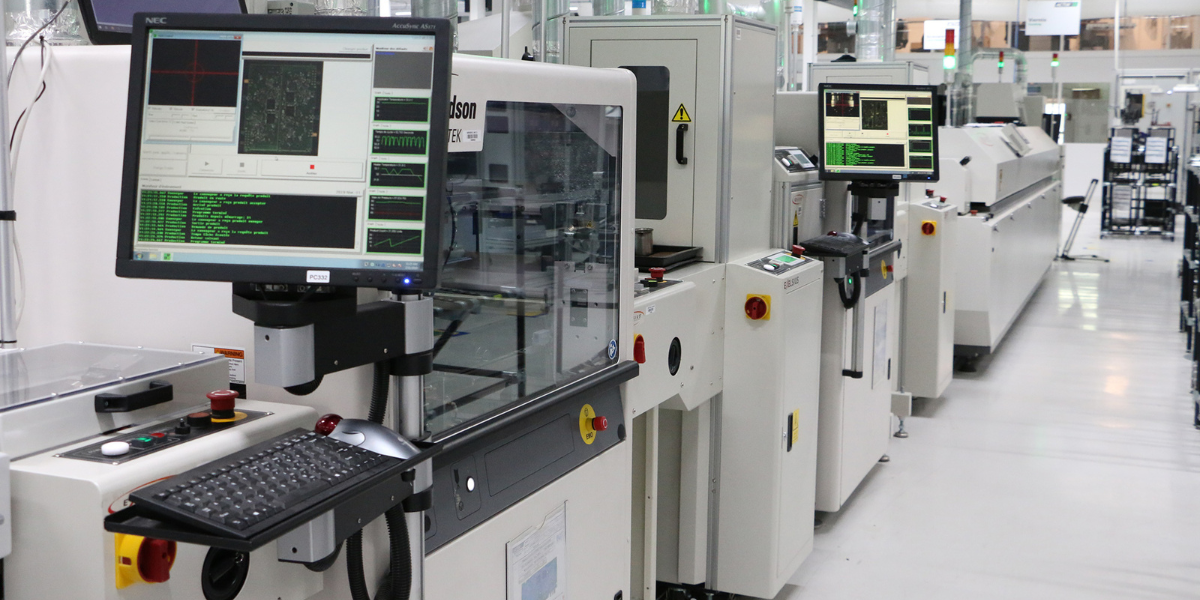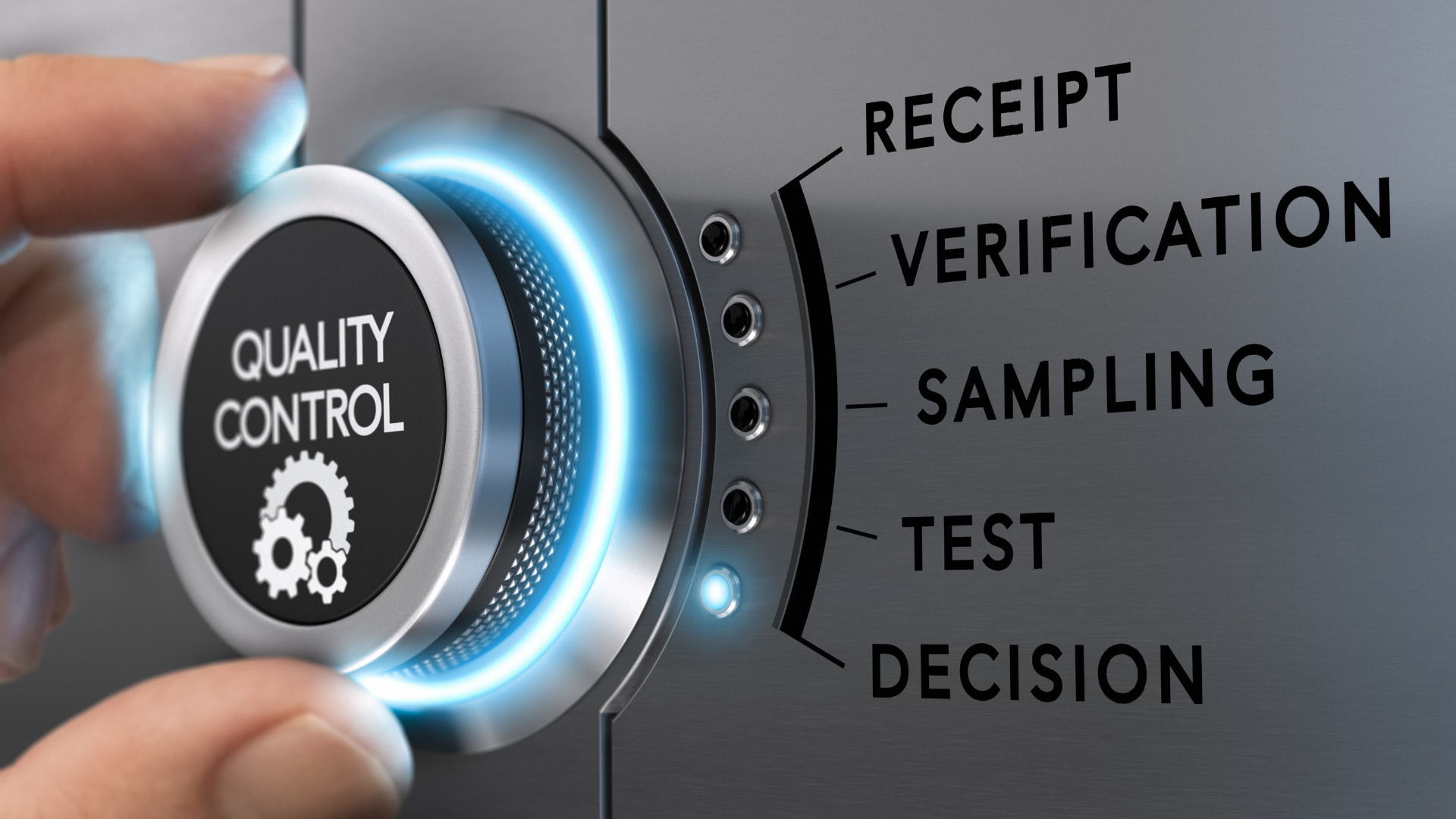The electronic manufacturing industry is a demanding sector with many standards that ensure the longevity and reliability of electronic devices. Many of these standards are industry-specific, such as those for automotive, healthcare, and defense. The large number of standards makes them difficult for companies to navigate, but compliance is a strategic asset for entering many markets and ensuring consumers’ trust.
IATF 16949
IATF 16949 is a globally recognized technical specification for quality management systems in the automotive industry. While not exclusively an electronics standard, it applies to the design, development, production, installation, and servicing of automotive-related products, covering a wide range of electronic components and systems. The standard integrates ISO 9001 quality management principles with specific automotive sector requirements, emphasizing process control and a customer-oriented approach. IATF 16949 emphasizes continuous improvement, defect prevention, and waste reduction throughout the supply chain.
For electronics manufacturers, meeting this standard is essential for success in the automotive market. It ensures that the manufacturing of electronic components and embedded systems adheres to the quality and reliability benchmarks demanded by vehicle manufacturers. Compliance demonstrates a commitment to stringent process control. Adherence to IATF 16949 ensures the safety, performance, and long-term durability of electronics in modern vehicles.
Nadcap
Nadcap stands for the National Aerospace and Defense Contractors Accreditation Program. It is an industry-managed program that provides a standardized approach to quality assurance for special processes in the aerospace and defense sectors. It covers various manufacturing processes, such as heat treating, chemical processing, and welding, and impacts specialized electronic components and assemblies with aerospace and defense applications.
The importance of Nadcap for electronic manufacturers working with those sectors cannot be overstated. They demand uncompromising reliability and performance. Even minor defects may have devastating consequences. For manufacturers, this translates to stringent process requirements for soldering, conformal coating, wire harness assembly, and component testing. Achieving Nadcap accreditation demonstrates that a company has the advanced capabilities necessary to work with such critical sectors thanks to its meticulously controlled manufacturing processes that consistently yield products of the highest quality.
ISO 13485
ISO 13485 is an international quality management system standard for organizations involved in the lifecycle of medical devices. This includes the design, development, production, storage, distribution, installation, servicing and decommissioning of medical devices, as well as the provision of associated services. The vast majority of such devices today, such as pacemakers or MRI machines, contain complex electronic systems, making this standard highly relevant for manufacturers aiming to work in the healthcare sector. ISO 13485 is based on ISO 9001, but adds specific requirements that address critical safety and regulatory aspects of the medical sector.
Complying with ISO 13485 is imperative for any manufacturer involved in medical electronics. This standard ensures that stringent controls are in place throughout the entire production process for Printed Circuit Board Assemblies (PCBAs) and other electronic sub-assemblies used in medical devices. It requires thorough documentation, comprehensive risk management strategies, and complete traceability of components. These measures are essential for ensuring patient safety and achieving the high level of reliability expected of medical devices.
IPC (Institute for Printed Circuits) Standards
The Institute for Printed Circuits (IPC) is a global industry association that develops and publishes widely adopted standards for designing, manufacturing, and assembling electronic equipment. Unlike management system certifications, such as ISO or IATF, IPC standards are not certifications that companies can achieve. Rather, they are consensus-based guidelines and criteria for manufacturing processes and product acceptance that EMS providers must adhere to for specific tasks or product categories. These standards establish a common language and set of expectations across the electronics industry.
Adherence to IPC standards is fundamental for electronic manufacturers to ensure the highest quality products. Key standards include:
- IPC-A-610, “Acceptability of Electronic Assemblies”,
- IPC-J-STD-001, “Requirements for Soldered Electrical and Electronic Assemblies”,
- IPC-7711/7721, « Rework, Modification and Repair of Electronic Assemblies”.
Implementing these standards ensures consistency in critical processes, such as Surface Mount Technology (SMT), component placement, and Automated Optical Inspection (AOI). Compliance demonstrates a commitment to industry best practices, resulting in fewer defects, higher product performance, and greater consumer confidence.
RoHS and REACh Directives
The RoHS (Restriction of Hazardous Substances) and REACh (Registration, Evaluation, Authorisation and Restriction of Chemicals) directives are European Union regulations that have become global standards for environmental compliance in various industries, including electronic manufacturing. Neither directive is exclusively for the electronics industry, as they address hazardous substances across a broad range of products and chemicals. RoHS restricts the use of certain dangerous materials, such as lead, mercury or cadmium, in electrical and electronic equipment to protect human health and the environment. REACh, on the other hand, is a more comprehensive regulation that governs the registration, evaluation, authorization, and restriction of chemical substances manufactured or imported into the European Union. It places the burden of proof on companies to manage chemical risks.
For manufacturers, compliance with RoHS and REACh is crucial for market access, sustainability and risk management. RoHS compliance requires careful material selection and process adjustments, such as lead-free soldering, while REACh compliance necessitates extensive supply chain communication and due diligence to identify and manage Substances of Very High Concern (SVHCs) in components and materials used.
EN 9100 / AS 9100
EN 9100 (in Europe) and AS 9100 (in the Americas and Asia) are globally recognized, harmonized quality management system standards developed specifically for the aviation, space, and defense industries. They apply to organizations at all levels of the supply chain that are involved in designing, developing, producing, assembling, or maintaining aerospace components and systems. They build upon the ISO 9001 norm by adding critical requirements for these sectors, such as addressing product safety, reliability, and integrity.
For electronics manufacturers, achieving EN 9100/AS 9100 certification is essential for operating within these markets. The standard requires stringent controls over every aspect of electronic manufacturing, including initial design, component selection, final assembly, testing, and delivery. Key requirements include robust configuration management, comprehensive traceability of all materials, rigorous risk management, and precise control over special processes, such as soldering and conformal coating.
Adherence to electronic manufacturing standard: A strategic asset
These standards are essential for maintaining a high level of quality throughout the electronics manufacturing sector. Adherence to these standards should be viewed not as a compliance exercise, but as a strategic imperative for technological excellence and earning consumers’ trust.
Companies may need assistance to achieve compliance or exceed the standards. Electronic Manufacturing Services (EMS) providers can be strategic partners in pursuing this goal. ACTIA offers companies a wide array of services to help electronics manufacturers achieve their goals




